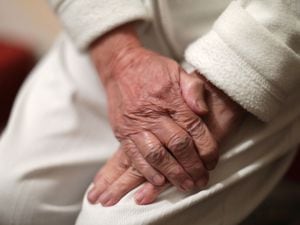Child poverty creating invisible generation – Gordon Brown
The former Prime Minister will highlight the issue during an appearance at the Edinburgh International Book Festival.

Lack of action to tackle child poverty is creating “a generation of invisible boys and girls”, according to former prime minister Gordon Brown.
He accused both the Scottish and UK governments of ignoring what he described as “a national disgrace”, and called for increases in welfare payments to address the issue.
The number of children living in poverty is set to increase to 5.2 million by 2022, up from around four million at present, according to the Institute for Fiscal Studies (IFS).
Meanwhile a separate report commissioned by the Scottish Government and published in April shows a sharp rise in child poverty north of the border, with a projected increase of more than 100,000 by the mid 2020s.
Mr Brown said the problem had reached “epidemic proportions”, pointing to a report by think tank the Resolution Foundation which put child poverty in the UK at around 1.6 million in 2010/11, before the Conservatives came to power.
The former Labour MP is expected to use his appearance at the Edinburgh International Book Festival on Wednesday to call for increases to child tax credit – which he first introduced in 2003 as chancellor – as part of the “most cost-effective” measures to reverse the trend.
He is expected to say: “Kirkcaldy – where I grew up – now has the fifth worst area for child poverty in Scotland – and the worst outside Glasgow. In East Kirkcaldy 40% of children are in poverty but soon, on current projections, every second child – more than 50% – will be in poverty.
“This means that without remedial action the prospects for nearly half a generation of children are today in tatters, with Westminster and Holyrood governments shamefully ignoring this national disgrace and the silent suffering and sorrows of left-out millions – and simply hoping the children, and the numbers, will remain invisible.”
He will add: “A major report by the Institute for Public Policy Research has argued that the most effective means of reducing relative child poverty would be to combine a living wage and higher child benefit with an increase in the child element of tax credits.”
Mr Brown will say that increases in child poverty are being driven by UK ministers’ cuts to benefits, but he is also expected to criticise Scottish ministers over their use of newly devolved tax and social security powers.
“If the Scottish Parliament is serious about addressing child poverty, it has the power under the Scotland Act 2016 to top up tax credits,” he will add.
“If there is any doubt on that – or on whether the HMRC has a duty to assist them in doing so – then I would support greater powers enabling the Parliament to act.”
An SNP spokesman said: “This is staggering hypocrisy from Gordon Brown, who lost the 2010 general election after Labour promised voters ‘deeper and tougher’ austerity than anything Margaret Thatcher imposed.
“Labour has also consistently opposed Scotland gaining the full range of economic and welfare powers which would allow us to properly tackle the scourge of child poverty that has been allowed to develop under successive Westminster Governments.”
A Scottish Government spokeswoman said: “We are committed to actions to help eradicate child poverty in Scotland by 2030, and we have outlined key measures as to how that goal can be achieved.
“That is despite ongoing UK Government austerity, which will see annual welfare spending cut by almost £4 billion in Scotland by 2020. At the same time, the UK Government’s chaotic roll-out of Universal Credit has had a devastating impact on families across Scotland.
“We expect to spend over £125 million in 2018-19 on welfare mitigation and measures to help protect those on low incomes – over £20 million more than in the previous year. We are also providing an income supplement to provide vital financial help to those children and families that need it most, a £12 million fund to support parents into work and a £7.5 million innovation fund to support new approaches to preventing and reducing child poverty.”
A UK Government spokesman said: “In Scotland, the proportion of children living in absolute poverty is at a record low, the employment rate is increasing and the number of children living in a workless household has fallen by around 27% since 2010.
“The best way to help people improve their lives is through employment and our welfare reforms incentivise work and offer parents tailored support to move into a job that fits around their caring responsibilities.
“We continue to spend around £90 billion a year on working-age benefits, including for those on low incomes, and last year we spent more than £27 billion on child and working tax credits.
“The Scottish Government now has significant welfare powers, including to top-up existing benefits, pay discretionary payments and create entirely new benefits altogether.”





